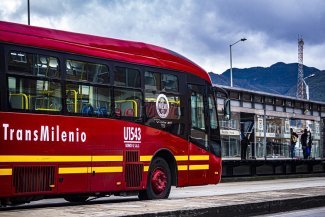
On 3 February 2020, Charles Kajoloweka was in his office in the northern Malawian city of Mzuzu, glued to the radio as judges read out what was to be a historic judgment. The five high court judges sitting as a constitutional court had for well over three months been listening to lawyers from the country’s two leading opposition parties, the Malawi Congress Party (MCP) and the United Transformation Movement (UTM). They had been arguing that the presidential election held in May 2019 had been rigged, citing the sporadic use of Tipp-Ex correctional fluid to alter polling station result sheets in favour of the incumbent, President Peter Mutharika of the Democratic Progressive Party (DPP).
The government and the Malawi Electoral Commission (MEC) insisted the irregularities were not significant enough to have altered the final result of the election, in which Mutharika got 38.57 per cent of the vote, Lazarus Chakwera of MCP got 35.41 per cent and Saulos Chilima of UTM came third with 20.24 of total votes. However, citing “anomalies and irregularities” that were “widespread, systematic and grave”, the unprecedented, 500-page ruling, which was read in its entirety over 10 hours and broadcast live on radio, annulled the disputed result and ordered for a new presidential election to be held within 150 days. Fresh elections were meant to take place on 2 July, but in the wake of the coronavirus pandemic, President Mutharika has announced a lockdown and the MEC has suspended voter registration.
“It was an exciting moment,” recalls Kajoloweka who is also executive director for Youth and Society (YAS), a local civil society organisation. “It was a manifestation of the reality on the ground that when people are determined they can achieve anything.”
The voiding of an election is a significant democratic step not only for the south-eastern African nation but also for other African nations.
As Calum Fisher, a researcher in Malawian politics at the School of African and Oriental Studies (SOAS), University of London wrote: “On a continent where democracy remains for the most part flawed and fragile, the Malawi ruling has struck a blow on the executive in the starkest possible terms in its defence of judicial independence”.
After gaining independence from Britain in 1964, Dr Hastings Kamuzu Banda ruled the country with an iron fist for 30 years, jailing, killing, and forcing his opponents into exile, and declaring himself president for life in 1971. Although Malawi became a multi-party democracy in 1994, there have been many challenges, including rampant corruption, a lack of transparency and accountability, in addition to widespread poverty and inequality.
However, there has been an increasing demand for accountability and justice from civil society leaders and grassroots organisations. Immediately after the May 2019 election, mass protests took place for months in cities across the country a bid to challenge the poll and call on MEC chair Jane Ansah to resign.
Peter Mutharika – a former law professor in the United States who specialised in international economic law, international law, and, ironically, comparative constitutional law – came to power following in the footsteps of his older brother, President Bingu wa Mutharika, who died in office in 2012. Despite being accused of treason after an inquiry found that Peter Mutharika had attempted to use the military to stop Bingu’s vice president Joyce Banda from assuming power after his brother’s death, Peter eventually won another disputed election in 2014 and became president.
But this time, the persistent efforts of the opposition, civil society and community organisations has led to a result that few could have imagined. Kajoloweka, whose organisation is part of the Malawi Human Rights Defenders Coalition (HRDC), says it was what the people of Malawi deserved: “It was a chaotic election that was far from being declared credible. As CSOs (civil society organisations), we have a responsibility to safeguard democratic principles including the will of the people through an election. We couldn’t accept anything less,” he adds.
Lessons learned
Observers insist that there are important lessons to be learned from Malawi’s recent experience of defending democracy.
“One lesson other countries can learn from what’s happening in Malawi is the way the HRDC and other organisations managed to keep the question of the election high profile by a series of mass protests. The strategy seems to be effective,” says Nicholas Cheeseman, professor of democracy at the University of Birmingham and co-author of the 2018 book How to Rig an Election. “That’s probably one of the strategies opposition parties and organisations in other countries might look at and learn from if they face an election they consider to be of poor quality.”
The BBC’s Africa correspondent Andrew Harding wrote in a piece just after the judgement: “In essence, the [constitutional court] judges argued that Malawians deserve, and should expect, an A- grade election – not perfect, perhaps (who can boast that?) but free of systemic abuse. They should not have to make do with the more familiar C+ election that some nations and institutions still seem to tolerate or encourage.”
In Africa, court rulings, when elections are disputed, rarely go against the ruling parties; the 2018 election in Zimbabwe is just one recent example. In Malawi, there had even been attempts by undisclosed parties to bribe the Malawian judges to ensure that the ruling went in the president’s favour (one prominent banker was later arrested in connection with the bribery case). That the judges still ruled against the government, Cheeseman says, demonstrates that Malawi has “independent democratic institutions—not perfect—but perhaps more independent than some other African countries”.
Malawi has followed the precedent set by Kenya in September 2017 when its supreme court judges annulled President Uhuru Kenyatta’s electoral victory, citing irregularities and a failure to conduct the polls in line with the country’s constitution. A fresh election was then ordered in 60 days, which Kenyatta eventually won. During the Malawi judgment, several references were made to the Kenyan ruling.
Both Malawi’s and Kenya’s court decisions have had, and will continue to have, a significant impact on democracy and the rule of law. Firstly, judges in both countries indicated that a failure to follow procedure should be considered enough to taint the result of an election; you do not need to prove that the opposition would have actually won. And perhaps, more importantly, both decisions set a precedent for the idea that you do not need to know the exact number of votes that have been lost or gained in order to overturn the result. Given the spate of contested elections and referendums held globally, these actions in support of electoral integrity send a powerful signal to the whole world.
According to Herman Manyora, a political and communication strategist based in Kenya, Africa is now at a point where the crucial role of an independent judiciary has been vindicated and will play a key role in the months and years ahead – especially on a continent that is home to six of the world’s ten longest serving leaders.
“Given that we’ve six or so elections in Africa this year, I’d not be surprised if one or two are annulled. This is one way of growing democracy because those in power will know they cannot stick around using fraudulent means. It’s good for democracy and its’s good for Africa,” he says.
But just like in Kenya, the decision by the judges in Malawi faces several challenges. “Courts can make decisions, set precedents and they can stipulate what should happen next. But courts don’t control legislation, and they can’t make legislation,” says Cheeseman. “They have limited power of enforcement…and they don’t control the security to ensure that decisions are upheld.”
In Kenya, although the court nullified the first election, this did not resolve the country’s political crisis. Instead, the annulment resulted in a period fraught with tensions and bouts of violence leading up to the re-run. “I think the message from Kenya is that unless we’re bold enough, court rulings may not give us a higher quality election or better democracy. But it is the start of a process that other groups and organisations need to come in on and be true not only to the letter [of the law] but also the spirit of the judgment,” says Cheeseman.








